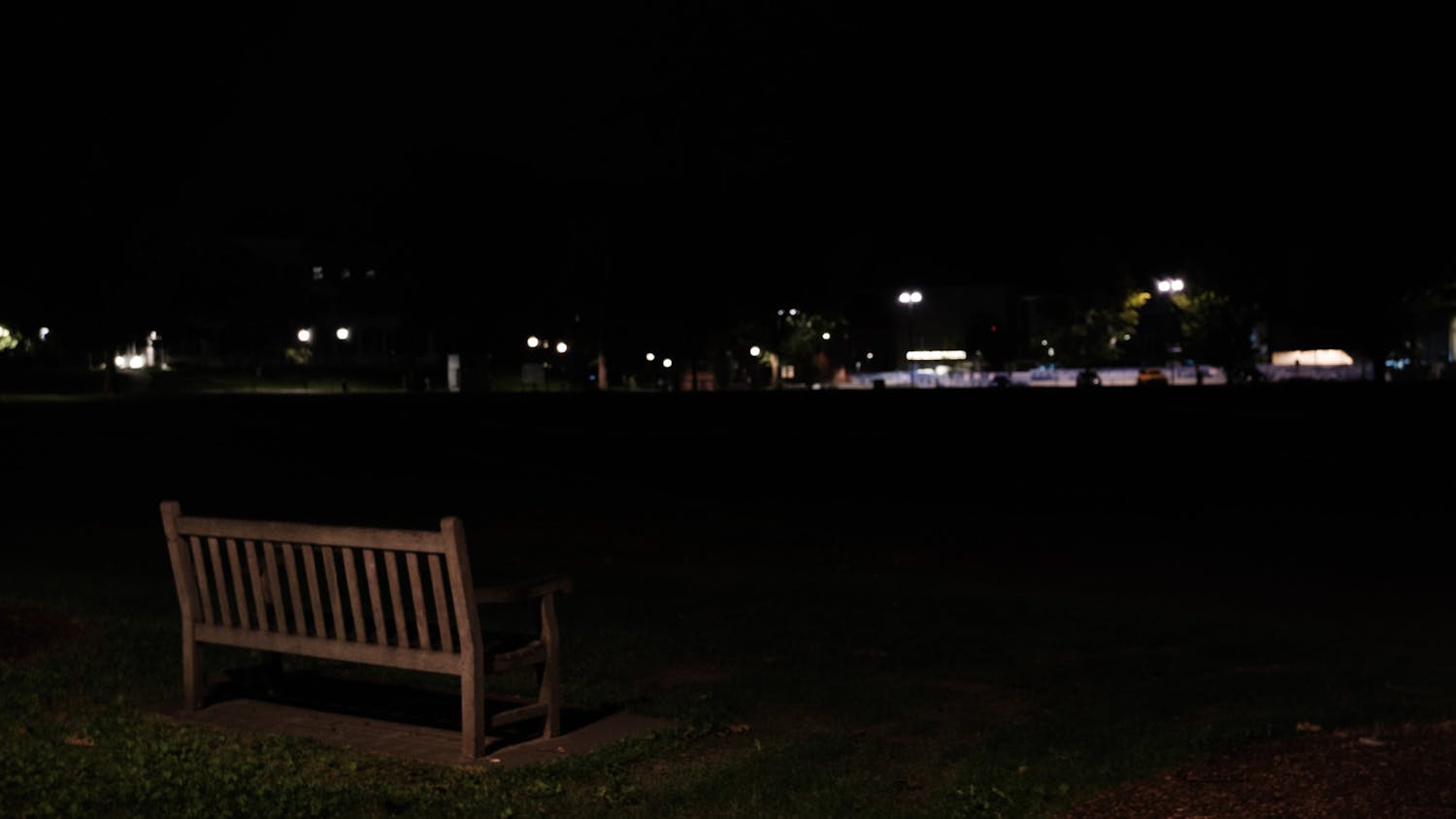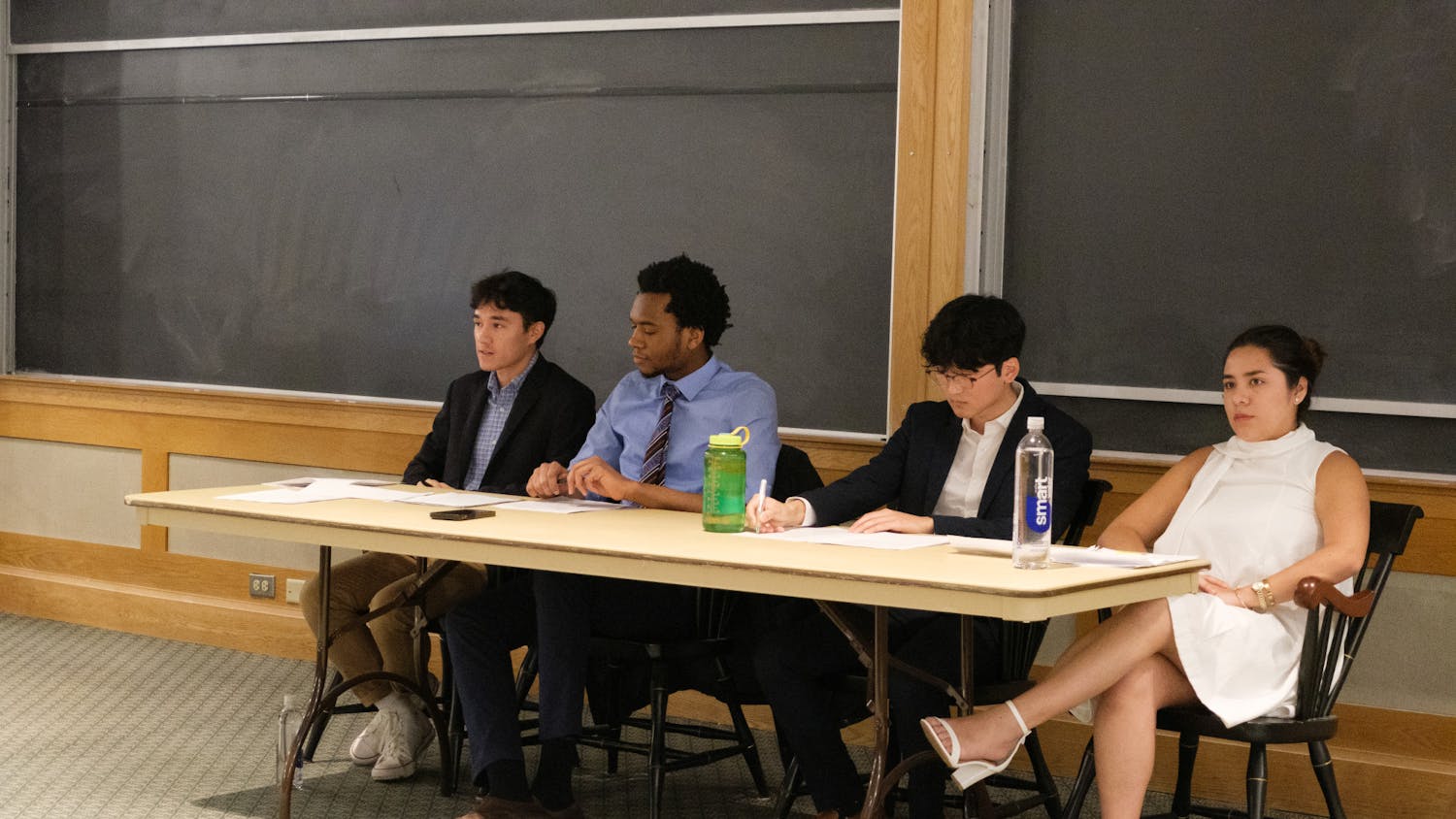Pulitzer Prize and and Tony Award-winning playwright Wendy Wasserstein gave dramatic readings and personal commentary on her experiences as the keynote address of the 2000 Senior Symposium on Friday.
Wasserstein offered humorous anecdotes about her life including one about the first time she set foot on the Dartmouth campus while a student at Mount Holyoke College in Massachusetts.
"I was bussed up here. I had a date who said his name was Sex Larson," she laughed. "I was just terrified."
Born October 18, 1950, in Brooklyn, New York, Wasserstein grew up with her two sisters in a Jewish family. Her religion has influenced her work as can be seen in many of her plays.
"The Sisters Rosensweig," a published in 1993, is the story of three Jewish sisters from Brooklyn who travel to London to celebrate a birthday.
Wasserstein said the play is about Jewish-American identity and that she was inspired by the plays of Anton Chekhov. Chekhov wrote a play called "Three Sisters" during the latter half of the 19th century.
"It was a hell of a lot of work to prove to myself that Chekhov was a great playwright," she said on writing "The Sisters Rosensweig," to much laughter from the audience.
London, the setting for "The Sisters Rosensweig," is where Wasserstein said she has spent much of her time. She wrote her most famous play, "The Heidi Chronicles," while living in London in the 1980s.
Wasserstein read three short scenes from "The Heidi Chronicles" in her keynote address to much laughter and applause from the audience of about 80 students, professors and community members.
Wasserstein won the Pulitzer Prize and a Tony Award in 1989 for "The Heidi Chronicles." She recalled the time when she told her mother about winning the Pulitzer.
"I told her I won the Pulitzer and she told my aunt I won the Nobel Prize," she said while holding back laughs. "And she believed her!"
"The Heidi Chronicles" is the story of Heidi Holland, an art historian growing up in the midst of the women's movement of the 1960s and 1970s.
The play flashes back and forth among different times in the main character's life, weaving a commentary on the turbulent time in American history.
When "The Heidi Chronicles" first came out, some feminists criticized the play. The character of Heidi, a single woman, adopts a baby in the play. Some critics argued that Wasserstein was conveying the notion that women need to have children in order to be fulfilled in life.
Wasserstein said she completely disagreed with this criticism of her work, saying that Heidi is only a character -- not every woman.
Wasserstein said the women's movement was a vital part of her life, and today she is known as a champion of feminism.
Hillary Rodham Clinton said several years ago that Wasserstein was her favorite playwright, but Wasserstein said she took this praise with a grain of salt. She even poked fun at Mrs. Clinton.
"She should have become a Senator before she married the President."
Wasserstein did not avoid the President's scandals either. "I was a Congressional intern once -- pardon the expression," she joked.
Wasserstein has also been quoted as saying, "If anyone's life would have been transformed by the burgeoning women's movement, it should have been hers," in reference to the First Lady.
Wasserstein also read a selection from "Uncommon Women and Others," one of her earlier works, which was made into a television movie starring Meryl Streep in 1979.
Wasserstein said she wrote "Uncommon Women" as a senior at Mount Holyoke. The play tells the story of five women reminiscing on their college years at the Massachusetts school.
Wasserstein, a single woman like her lead in "The Heidi Chronicles," recently gave birth to a child of her own. She wrote an essay about the experience in The New Yorker.
She told the audience she wanted to write the essay herself because she wanted it to be as personal and truthful as possible.



